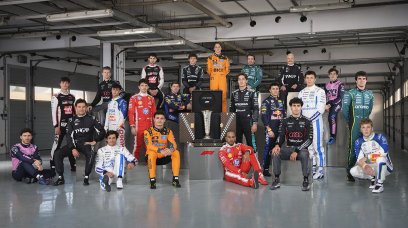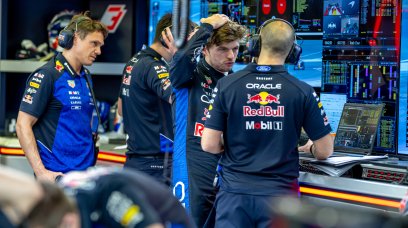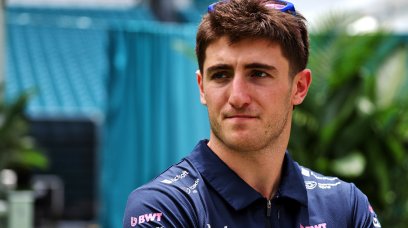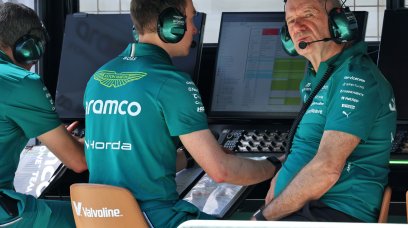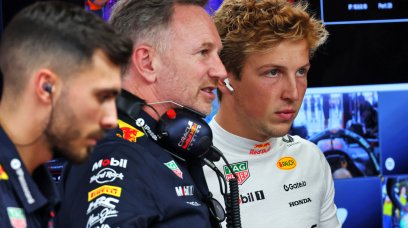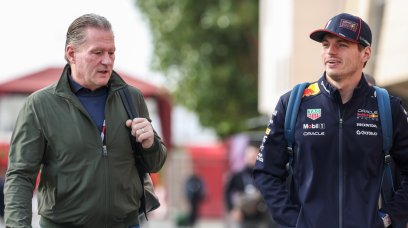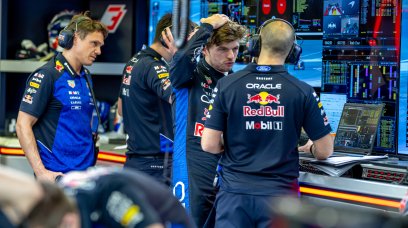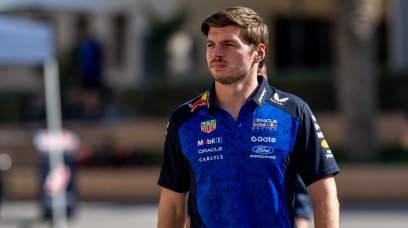Red Bull Racing design icon Adrian Newey has offered his thoughts on some of the big changes for the 2022 season, including the direction in which the new regulations will take Formula 1. Newey, speaking exclusively to RacingNews365.com , had some praise for the rules reset, confident that revised aerodynamic regulations will bring more overtaking, while the sport's cost cap will prevent an arms race amongst the teams at the top. But he has cast some doubt over whether the new, heavier cars promise to take the sport forward or pose a greater question on sustainability.
Will F1's new regulations bring more overtaking?
Besides offering fans a pecking order of this season's grid, the Bahrain Grand Prix will also show whether or not cars can follow easier than before. Promoting better overtaking has been one of the biggest objectives of the regulation change and flashes of on-track testing battles have offered plenty of excitement. "I think that the principle of trying to help overtaking by reducing the sensitivity of the following car to the one in front is... okay," Newey accepted. "I think it will help overtaking a little bit. I don't think it will be a significant shift, but it will help a little bit. "I think there are other ways it could have been done, let's say."
Newey concerned F1 grid could spread out futher
There is a real hope amongst F1 fans that the new regulations will bunch the pack together, allowing all 10 teams the chance to fight for points and more outfits than ever to challenge for wins and podiums. However, given the scale of this winter's overhaul, Newey is anticipating the opposite effect – and for it to last for a number of years. "The only thing I would say is that this is, in reality, the biggest aerodynamic change we've had since Venturi cars were banned in 1982," he said. "If you're going to have such a big regulation change, which inevitably brings all sorts of other changes, it will probably spread the grid apart during the early seasons."
2022 weight limit remains the biggest challenge of all
Red Bull have been open regarding their fight to shave pounds off their car this season, as they struggle to keep their RB18 down to the minimum weight. F1's minimum car weight is soon set to increase again to almost 800kg, following discussions between teams, RacingNews365.com understands. After a series of talks, the teams have agreed to an additional 3kg increase amongst themselves, bringing the total car weight up to 798kg, but this still needs to go through the F1 Commission and World Motor Sport Council (WMSC) for formal approval. When asked if getting the weight of the cars down to that 795 kilogram minimum weight had been the biggest obstacle of all during the regulation change, Newey answered: "Getting the cars to the weight limit, for a lot of the teams, is a big challenge, for sure. "You've got to remember that, very roughly speaking - it, of course, varies from circuit to circuit - but you're talking roughly three-eighths of a second per 10 kilos."
Do the new regulations pose a sustainability question?
The added weight, of course, and added drag, makes the new Formula 1 cars, armed with the same V6 hybrid power units, harder to move, corner and stop. That in itself is food for interesting debate, says Newey, with the sport pushing year-on-year to become more sustainable. "The reality is you've now got cars that have an over 900-kilogram start-line weight, so you're well into what used to be very heavy for sports cars," he explained. "In a few short years, the weight limit has gone from low six hundred (kilos), but carrying 30 or 40 kilos of ballast, to now cars that are 880 (kilos), and we're all working like mad to try and get to the [current] 795 (kilo) limit. "So the cars have got bigger and heavier and, aerodynamically, not particularly efficient, [with] lots of drag. I think it is a bit of a shame that Formula 1 has gone in that direction, because there's the opportunity at the moment to go the opposite [way]."
Newey: F1's following road cars down the wrong path
"That direction is the same as general automotive has gone," Newey continued. "Everybody is driving bigger and heavier cars all the time, and wider, and then people are obsessing about if it is battery or petrol. "Well, the biggest single problem is the amount of energy it takes to move the damn thing, regardless of where that energy comes from. Nobody really grasps that nettle because, of course, the big car manufacturers don't want to. "I think [F1 cars should be] lightweight and [focused on] aerodynamic efficiency." He added: "Nobody seems to be talking about the amount of energy that is used to move your vehicle. So, rather ridiculously at the moment, manufacturers get a dispensation if they make their car bigger and heavier, in terms of their Co2 emissions as a manufacturer. I mean, where is the logic in that course?"
F1's new cost cap remains a topic for debate
F1 teams have also been tasked with building their new 2022 cars under the constraints of a tightening cost cap, introduced in an attempt to create a more level playing field. "I totally agree that Formula 1 need to try to avoid constant arms races and reduce costs," said Newey. "Whether you do it by mainly cost cap, which is obviously the route that Formula 1 has taken, or whether you do it by other means, I think is wholly debatable. "The reality is that trying to do it financially is very complicated. It's a difficult thing to police." He summed up: "When we're in the position now where just about every team on the grid has hit the cost cap, then you can easily argue the cost cap is actually too low. "It should be preventing an arms race amongst, in my opinion, the top two or three teams, not bringing the whole grid down."
Most read
